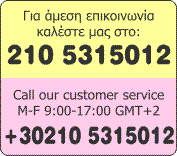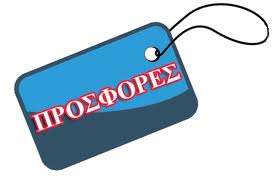 Sourcebook for Political Communication Research
Sourcebook for Political Communication Research
Sourcebook for Political Communication Research
Methods, Measures, and Analytical Techniques
Συγγραφέας: Erik P. Bucy, R. Lance Holbert
ISBN: 9780415964951
Σελίδες: 586
Σχήμα: 18 X 25
Εξώφυλλο: Σκληρό
Έτος έκδοσης: 2010
The Sourcebook for Political Communication Research offers a comprehensive resource for current research methods, measures, and analytical techniques. The contents herein cover the major analytical techniques used in political communication research, including surveys, experiments, content analysis, discourse analysis (focus groups and textual analysis), network and deliberation analysis, comparative study designs, statistical analysis, and measurement issues. It also includes such innovations as the use of advanced statistical techniques, and addresses digital media as a means through which to disseminate as well as study political communication. It considers the use of methods adapted from other disciplines, such as psychology, sociology, and neuroscience.
With contributions from many of the brightest scholars working in the area today, the Sourcebook is a benchmark volume for research, presenting analytical techniques and investigative frameworks for researching political communication. As such, it is a must-have resource for students and researchers working and studying activity in the political sphere.
Contents
Introduction
1. Advancing Methods and Measurement: Supporting Theory and Keeping Pace with the Modern Political Environment
R. Lance Holbert, The Ohio State University, and Erik P. Bucy, Indiana University
Survey Methodology
2. Challenges and Opportunities of Panel Designs
William P. Eveland, Jr., The Ohio State University, and Alyssa C. Morey, The Ohio State University
3. The Rolling Cross-Section: Design and Utility for Political Research
Kate Kenski, University of Arizona, Jeffrey A. Gottfried, University of Pennsylvania, and Kathleen Hall Jamieson, University of Pennsylvania
4. Political Communication Survey Research: Challenges, Trends, Opportunities
Lindsay H. Hoffman, University of Delaware, and Dannagal Goldthwaite Young, University of Delaware
Secondary Analysis and Meta Analysis
5. Secondary Analysis In Political Communication Viewed as Creative Act
R. Lance Holbert, The Ohio State University, and Jay Hmielowski, The Ohio State University
6. Comparing the ANES and NAES for Political Communication Research
Michael W. Wagner, University of Nebraska-Lincoln
7. The Implications and Consequences of Using Meta-Analysis for Political Communication
Mike Allen, University of Wisconsin-Milwaukee, David D’Alessio, University of Connecticut, and Nancy Burrell, University of Wisconsin-Milwaukee
Experimental Methods
8. Experimental Designs for Political Communication Research: Using New Technology and Online Participant Pools to Overcome the Problem of Generalizability
Shanto Iyengar, Stanford University
9. Expressing versus Revealing Preferences in Experimental Research
Yanna Krupnikov, Indiana University, and Adam Seth Levine, University of Michigan
10. The Face as a Focus of Political Communication: Evolutionary Perspectives, Experimental Methods, and the Ethological Approach
Patrick A. Stewart, University of Arkansas, Frank K. Salter, Max Planck Society, Andechs, Germany, and Marc Mehu, University of Geneva, Geneva, Switzerland
11. Multi-Stage Experimental Designs in Political Communication Research
Glenn J. Hansen, University of Oklahoma, and Michael Pfau, University of Oklahoma
Content Analysis
12. Image Bite Analysis of Political Visuals
Erik P. Bucy, Indiana University, and Maria Elizabeth Grabe, Indiana University
13. Identifying Frames in Political News
Dennis Chong, Northwestern University, and James N. Druckman, Northwestern University
14. Content Analysis in Political Communication
William L. Benoit, Ohio University
Discourse Analysis
15. The Uses of Focus Groups in Political Communication Research
Sharon E. Jarvis, University of Texas-Austin
16. Genealogy of Myth in Presidential Rhetoric
Robert L. Ivie, Indiana University, and Oscar Giner, Arizona State University
Network and Deliberation Analysis
17. Methods for Analyzing and Measuring Group Deliberation
Laura W. Black, Ohio University, Stephanie Burkhalter, Humboldt State University, John Gastil, University of Washington, and Jennifer Stromer-Galley, University of Albany, SUNY
18. Porous Networks and Overlapping Contexts: Methodological Challenges in the Study of Social Communication and Political Behavior
Scott D. McClurg, Southern Illinois University
Comparative Political Communication
19. Mediatization of Politics: Toward a Conceptual Framework for Comparative Research
Jesper Stromback, Mid Sweden University, Sundsvall, Sweden
20. International Applications of the Agenda-Setting Acapulco Typology
Maxwell E. McCombs, University of Texas-Austin, Salma Ghanem, University of Texas-Pan American, Federico Rey Lennon, Catholic University, Argentina, R. Warwick Blood, University of Canberra, Australia, and Katherine Chen, National Chengchi University, Taiwan
21. Political Communication Across the World: Methodological Issues Involved in International Comparisons
Christina Holtz-Bacha, University of Erlangen-Nürnberg, Germany, and Lynda Lee Kaid, University of Florida
Statistical Techniques
22. Expanding the Use of Structural Equation Modeling (SEM) in Political Communication
R. Lance Holbert, The Ohio State University, and Heather L. LaMarre, University of Minnesota
23. Mediation and the Estimation of Indirect Effects in Political Communication Research
Andrew F. Hayes, The Ohio State University, Kristopher J. Preacher, University of Kansas, and Teresa A. Myers, The Ohio State University
24. Time-Series Analysis and the Study of Political Communication
Jennifer Jerit, Florida State University and Adam F. Simon, Yale University
Measurement
25. Concept Explication in the Internet Age: The Case of Interactivity
S. Shyam Sundar, The Pennsylvania State University, and Saraswathi Bellur, The Pennsylvania State University
26. Beyond Self-Report: Using Latency Measures to Model the Question Answering Process on Web-Based Public Opinion Surveys
John E. Newhagen, University of Maryland
27. What the Body Can Tell Us About Politics: The Use of Psychophysiological Measures in Political Communication Research
Erik P. Bucy, Indiana University, and Samuel D. Bradley, Texas Tech University
Conclusion
28. Looking Back and Looking Forward: Observations on a Rapidly Evolving Field
Gerald Kosicki, The Ohio State University, Doug M. McLeod, University of Wisconsin-Madison, and Jack M. McLeod, University of Wisconsin-Madison






